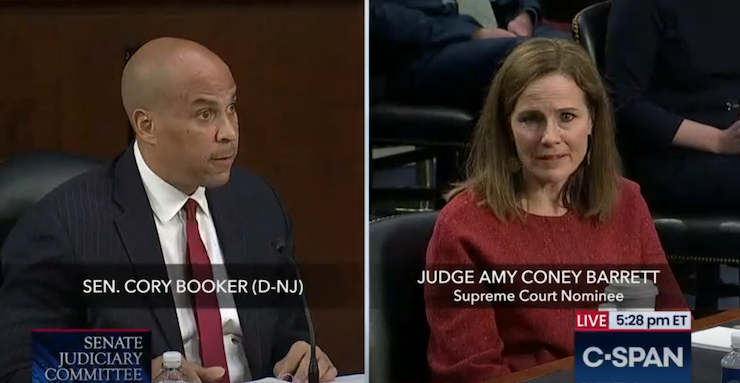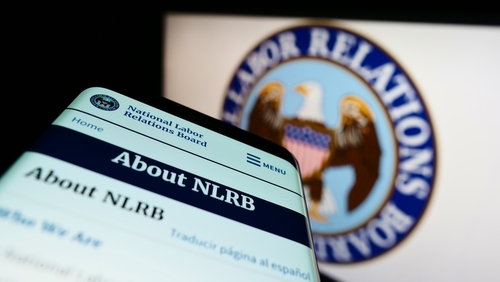Sen. Booker complains of rushed nomination process for Barrett, notes Notre Dame profs' call for delay

Democratic Sen. Cory Booker of New Jersey questions U.S. Supreme Court nominee Judge Amy Coney Barrett during her confirmation hearing Oct. 13. Image from C-SPAN.
Democratic Sen. Cory Booker of New Jersey posed a series of questions to U.S. Supreme Court nominee Judge Amy Coney Barrett on Tuesday, eliciting an unequivocal statement that she condemns white supremacy. But Barrett mostly avoided other questions premised on current events.
Booker began by stating that it’s not a normal time. About 10 million people have already voted throughout the nation. The COVID-19 pandemic is producing tens of thousands of new infections every day along with widespread food insecurity.
President Donald Trump has “repeatedly attacked the legitimacy of our institutions,” he said. And Trump has cast a shadow over the institution of the Supreme Court by saying he would only appoint justices who would overturn Roe v. Wade and the Affordable Care Act, Booker said.
“It seems like we are rushing through this process” of confirmation, Booker said.
Booker noted an “impassioned” open letter signed by nearly 90 faculty members from the University of Notre Dame calling on Barrett to call a halt to the nomination process until after the November presidential election. The faculty members who signed the letter were in a range of departments, from physics to anthropology to music.
The letter said Barrett’s nomination “comes at a treacherous moment” when politics are consumed by “polarization, mistrust and fevered conspiracy theories.” The politics of Barrett’s nomination “will further inflame our civic wounds, undermine confidence in the court, and deepen the divide among ordinary citizens,” the letter said.
Booker proceeded to ask some questions. Does Barrett condemn white supremacy? Barrett answered yes. Does she think every president should make a commitment to the peaceful transfer of power? Barrett said the question seemed to be referring to Trump’s statements, and to the extent that this is a political controversy right now, she doesn’t want to express a view.
Booker pressed on, asking in light of the Founding Fathers and traditions, should a president commit himself to a peaceful transfer of power? Barrett answered that one of the beauties of America is that the country has had peaceful transfers of power since the beginning of the republic.
“It is part of the genius of our Constitution and the good faith and good will of the American people” that the country has not have the type of situations that occurred in other countries, she said.
Booker also asked: Does a president have the power to pardon himself for future or past crimes? Barrett would not answer. Nor would she answer a question about the emoluments clause and Trump’s indebtedness.
Write a letter to the editor, share a story tip or update, or report an error.


